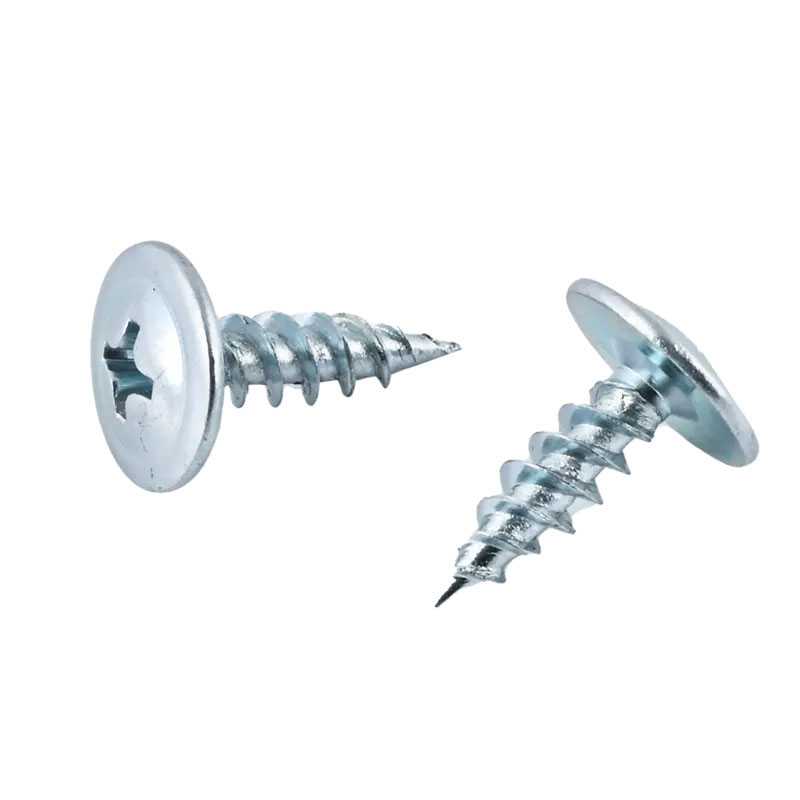What Makes Self-Tapping Screws Essential for Your DIY Projects?
2024-12-21
When it comes to DIY projects, home repairs, or professional construction, having the right tools and fasteners is crucial for ensuring a successful outcome. One of the most versatile and widely used fasteners is the self-tapping screw. But what exactly makes self-tapping screws so essential for your DIY projects? In this blog, we’ll explore the features, benefits, and best uses of self-tapping screws, and why they are a must-have for your toolbox.
1. What Are Self-Tapping Screws?
Self-tapping screws are specially designed screws that are capable of cutting their own threads into the material they are driven into. This eliminates the need for pre-drilling a pilot hole, which is common with regular screws. They have a sharp, pointed end that allows them to create their own hole and grip firmly onto materials like wood, plastic, metal, or sheet metal.
There are several different types of self-tapping screws, including thread-cutting screws and thread-forming screws, each suited for different materials and applications. The design of the screw allows it to "tap" or create threads as it is driven in, making them ideal for various tasks.
2. Why Are Self-Tapping Screws Ideal for DIY Projects?
- No Need for Pre-Drilling
One of the biggest advantages of self-tapping screws is that they don’t require a pilot hole. This saves you time and effort, especially when working on projects that involve multiple fasteners or where precision isn't an issue. You can simply drive the screw into the material, and it will do the work of creating the necessary threads.
- Quick and Easy to Use
Self-tapping screws are incredibly easy to use, making them perfect for DIY enthusiasts and professionals alike. With the right screwdriver or drill, you can quickly insert these screws without worrying about additional steps, such as drilling or tapping threads separately.
- Variety of Materials
Self-tapping screws can be used on a wide range of materials, including wood, plastic, and metal. Whether you're working on a wooden shelf, a plastic container, or a metal frame, there’s likely a self-tapping screw that fits your needs. This versatility makes them an excellent option for various projects, from furniture assembly to building structures.
3. How Do Self-Tapping Screws Improve Project Efficiency?
- Time-Saving
By eliminating the need for pre-drilling, self-tapping screws speed up the process of joining materials. This is especially beneficial when you're working on large-scale projects or trying to meet tight deadlines. The ability to drive screws directly into the material with minimal preparation allows you to focus more on the quality and assembly of your project.
- Reduced Risk of Material Damage
Since self-tapping screws cut their own threads as they are driven in, there's a reduced risk of splitting the material or damaging it. This is particularly helpful when working with materials like wood, which can easily split when drilled into without the proper pilot hole. The sharp point of the screw ensures that it enters the material smoothly, minimizing damage.
- Strong, Secure Fastening
The threads that self-tapping screws create provide a secure and long-lasting grip. This ensures that your materials remain tightly fastened over time, reducing the need for frequent maintenance or re-tightening. Whether you’re assembling furniture, fixing appliances, or constructing outdoor structures, you can rely on self-tapping screws to hold things together.
4. Where Are Self-Tapping Screws Used?
Self-tapping screws are commonly used in a variety of applications, including:
- Furniture Assembly
Many furniture pieces, especially those made from particleboard or MDF, use self-tapping screws for easy and secure assembly. These screws help hold together parts without the need for additional tools or hardware, making them perfect for quick furniture building projects.
- Electrical and Electronics
Self-tapping screws are often used to secure electrical components or mount items to metal frames, such as in electronics assembly or appliance repairs. Their ability to tap threads into thin metal surfaces makes them ideal for use in electrical enclosures or control panels.
- Automotive and Metalworking
In metalworking or automotive applications, self-tapping screws are used to fasten parts made of steel, aluminum, and other metals. They are particularly useful in situations where pre-drilling might be impractical due to the hard nature of the material.
- Home Repairs
From fixing loose fixtures to attaching shelves, self-tapping screws are a go-to choice for home repair projects. They're also helpful in securing plumbing or HVAC components, making them essential for both simple and complex repairs.
5. How to Choose the Right Self-Tapping Screw for Your Project?
Choosing the right self-tapping screw depends on the material you're working with and the type of project you're tackling. Here are a few tips for selecting the best screw:
- Material
Consider the material you are fastening. Some self-tapping screws are designed specifically for wood, while others are made for use with metal or plastic. Ensure that the screw you select is compatible with your material to get the best results.
- Screw Length and Size
Ensure you choose the appropriate screw length for your project. A screw that is too short may not penetrate deep enough into the material, while a screw that is too long could cause damage or create an unnecessary gap. Also, choose the correct thread size for a secure fit.
- Coating
If your project involves outdoor exposure or use in harsh environments, consider screws with a corrosion-resistant coating, such as zinc or stainless steel. These coatings will help prevent rust and ensure the longevity of the screw.
6. Are There Any Limitations to Using Self-Tapping Screws?
While self-tapping screws are incredibly useful, they do have some limitations:
- Material Compatibility
Some very hard materials, like thick steel, may not be suitable for self-tapping screws unless they are designed for heavy-duty use. In such cases, pre-drilling may still be necessary to ensure a secure fit.
- Over-tightening Risks
Like any screw, if over-tightened, self-tapping screws can strip the threads they create, making them less effective and harder to remove. It’s important to tighten them to the right level to ensure maximum hold without causing damage.
Conclusion
Self-tapping screws are an indispensable tool for DIY enthusiasts, professionals, and anyone involved in construction or repair. Their ability to create their own threads and fasten materials securely without the need for pre-drilling makes them incredibly efficient and versatile. Whether you’re building furniture, repairing appliances, or working on automotive or construction projects, these screws offer convenience, strength, and reliability.
Are you ready to add self-tapping screws to your toolbox? What types of projects do you think these screws will be most helpful for? Let us know in the comments below!



